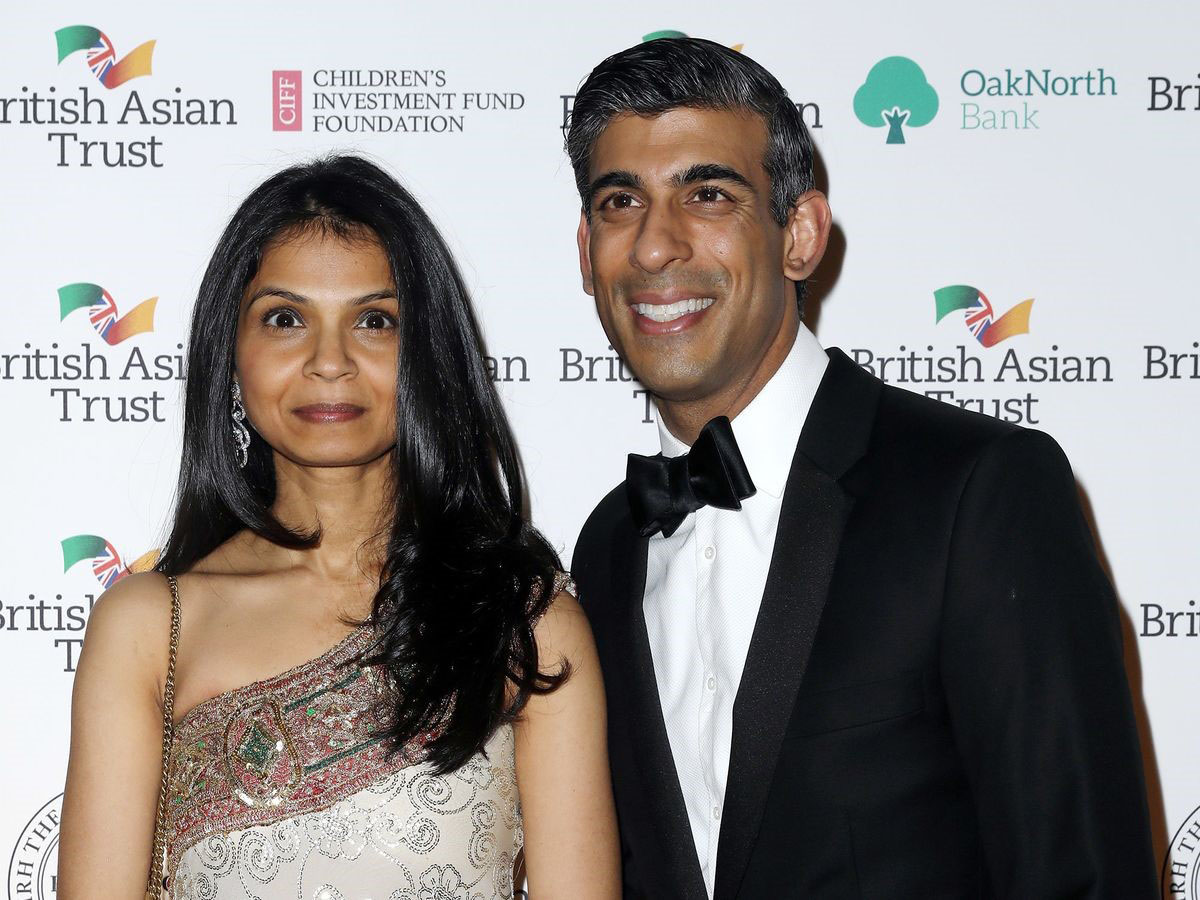(Reuters) – Akshata Murthy, the wife of British finance minister Rishi Sunak, said yesterday that she would stop avoiding British tax on her foreign income — bowing to pressure which her husband had earlier dismissed as a political smear.
The public anger over Murthy’s tax status has been heightened by her husband’s decision to increase payroll taxes at a time when surging inflation leaves Britons facing the biggest cost-of-living squeeze since records began in 1956.
Murthy, an Indian citizen, is eligible for so-called “non-domiciled” status in Britain, something available to foreign nationals who do not regard Britain as their permanent home. That in turn allowed her to opt to pay UK tax only on income she earned in or transferred to Britain. Murthy is the daughter one of the founders of Indian IT giant Infosys INFY.NS and owns about 0.9% of the company — entitling her to a dividend payment worth 11.6 million pounds ($15.1 million) last year.
In a statement late on Friday, after two days of critical media coverage, Murthy said she would pay British tax on her global income, including dividends and capital gains, for the 2021/22 tax year and in future.
“I understand and appreciate the British sense of fairness and I do not wish my tax status to be a distraction for my husband or to affect my family,” she said.
Murthy said her previous tax arrangements were “entirely legal”, and that she would continue to claim India, not Britain, as her domicile. Sunak previously said she intends to return to India to care for her parents when they become infirm.
Sunak has been touted as a successor to Prime Minister Boris Johnson, whose own position has come into question after widespread criticism over illegal parties held at Downing Street during COVID-19 lockdowns and a series of other scandals.
After earning plaudits for a steady-handed response to the pandemic, Sunak’s poll ratings have plunged as he faces challenges on many fronts, with the tax burden due to reach its highest since the 1940s.
Earlier on Friday, Sunak said in an interview that his wife’s financial investments were separate from his, and that questions about his father-in-law’s wealth and his wife’s tax arrangements were politically motivated attempts to damage him.
“To attempt to smear him, to smear my wife to get at me is awful, right?,” he told The Sun newspaper.






